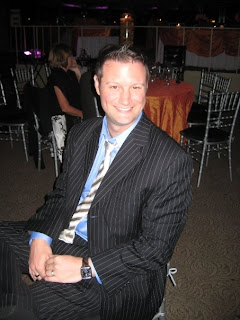
As we approach the new year of 2010 we sit in one of the most interesting times in human history. As Entrepreneurs we have the opportunity to change the course of the U.S. economy, with a little help for the administration of course. The New Year 2010 will be what you, as an entrepreneur, make it. Going in to this New Year know that there are some things we all need to be aware of. Social Media and its presence in the world of marketing and promotions, regulation changes, tax changes (not for the good with our current administration), the availability of talent in the marketplace and cheaper money are just a few of them. So, in order to be ready for this upcoming New Year we all should be prepared to do the 5 following things:
3. Train like never before- There will be a high precedence set on training in a world like the one we are about to see. If we have $80,000 a year people looking for jobs and taking $50,000 a year jobs this tells us they came from a much larger shop and need the major training to be reminded of big dollar corps of yester year. Be professional even if you are small, it will attract more talent than you can possibly imagine! Training can work like a recruiting tool if done right. Just remember that you time is valuable and find ways to save time in 2010.
2. Save Time, Use Technology- because money will be selling at a premium to you in 2010. The ways to save time are simple and need no explaining what they do. So to make this useful to those that are reading it I will make it simple by explaining how to use this new technology. Use video, ALL THE TIME!!! Record every training session, every board meeting and every client meeting, it allows to be played over again at your leisure. It also allows you to be able to prove things that may take up your time later with proof. Use lots and lots of webcasts and save on flight money. By a good version of some speech to text software and experiment with it to see if it is worth the time saving. Get yourself the newest Neat Works scanner and go to town; you will never have to input info again!!! Use CRM’s and Project managers religiously, they will be the big heroes for you. The more technology you use the more money and time you save.
1. SELL YOUR PRODUCT YOURSELF- There is a very bad trend that exists in the “Entrepreneur World” and it is the trend of being too good to sell. Owner need to be on the phone 2 times more than the best salesman in the firm. You, as a CEO, have the responsibility to make calls all day and find a way to sell somehow. What I have done in the past is hire a full time assistant and let her do a lot of the smaller things I was doing, just so I could sell again. Think as though you weren’t the owner and you saw the owner working harder than you on the day to day and then out selling you in the end of every month, what a cool thing! There is no bullshit in that statement, only truth. If you are running a company and can find an hour a day, make calls and try to sell, you keep the commission and prove yourself to the crew right away. Selling the plan is the most important thing anyone can do all day, make sure you fit your time right. Use Social Media, Text Campaigns, New Software, and an electronic newsletter to save some funds and some costs. Hire a Social Media firm and let them take a listen to what you plan to do, if they can help, let them and start to build in an implementation schedule.
This is not a “get ahead” idea, this is a must for you as an entrepreneur in 2010, The New Year. You can either be brought in now, or forced in later. The New Year of 2010 will be one that makes new legends and keeps some people poor, the choice is yours. Often times we see that most people that do not succeed have the same excuse, I just didn’t have enough time. Start finding that time over the rest of 2009 and by the time the New Year 2010 comes in you will know exactly how to get this done. There will be many more of the posts to read, so please feel free to send me a comment.
San Diego, California



